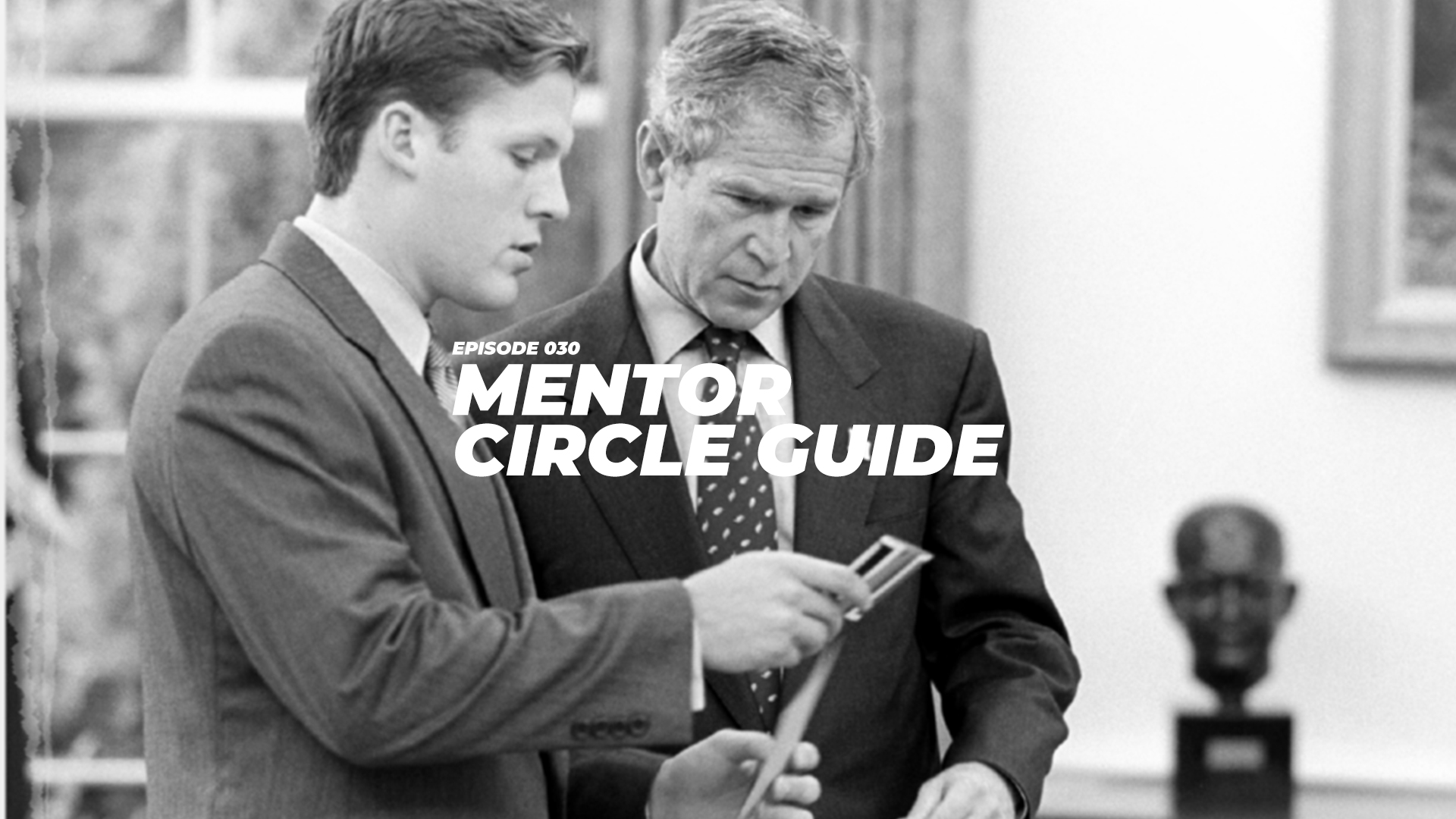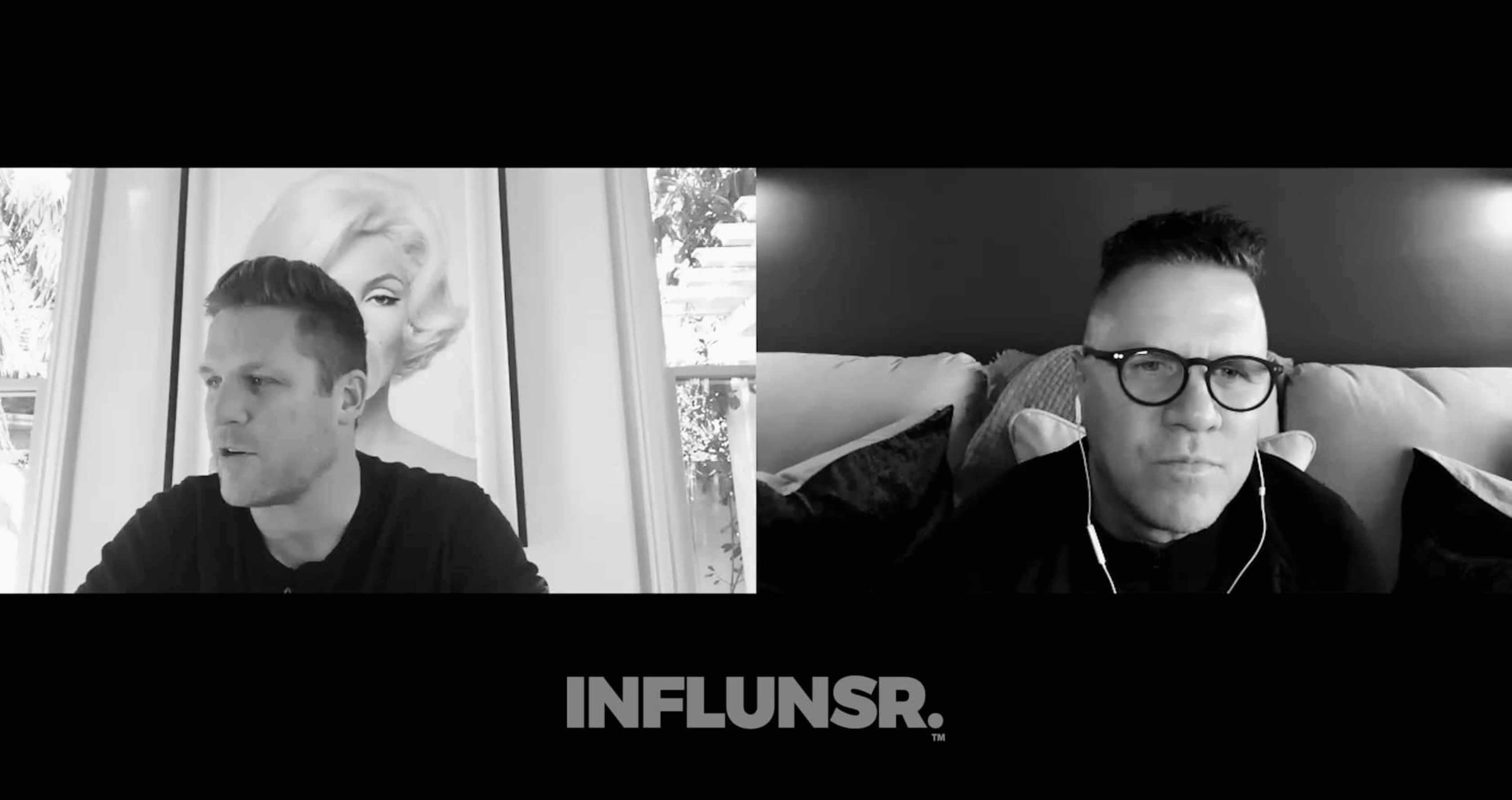Reed Dickens is a former White House Assistant Press Secretary under George W. Bush, the Co-Founder and former CEO of Marucci Sports, Co-Founder and Chairman of EQtainment, and Founder and Chairman of LA Golf Partners. Reed, his wife Sofia and their four children reside in Newport Beach, California, where Reed currently leads LA Golf Partners.
Reed and Stuart have an impassioned conversation about choosing passion over distraction and what it means to be a next generation leader worth following.

We asked you to read of how a 16-year-old girl named Yu Gwan-sun became the face of a nation’s collective yearning for freedom when a call for peaceful protests in support of Korean independence came in spring 1919…
INFLUNSR. defines grit as choosing passion over distraction.
Paul encourages the Church in Colosse to be “strengthened with all power according to His glorious might so that you may have great endurance and patience.”
Grit sometimes is the strength to endure successfully over the long haul of life. Anyone can see themself accomplishing and finishing well when life is viewed from the starting line. But when difficulty arises and reserves are running low, in the middle of the race, crossing the finish line can seem unattainable. Do you possess that necessary strength? Not the exhaustive strength when the going gets tough, but the strength that comes from living in the strength Jesus provides.
Paul encourages Jesus followers not only endure but also to be fully confident that the Holy Spirit fills us with His glorious might to endure the unendurable with patience and great joy. Grit is what sets you apart, gets you to the finish line well. Grit is not directly attached to talent, accomplishment, EQ or IQ. The amount of grit we possess is not determined at birth and grit will not expire over time. Our Grit capacity can be developed and grow in amount and intensity throughout our life time. The formula for increasing your reserve of grit is a simple one, yet one that requires time and determination.
Preparation + Endurance + Passion = Grit
The New Testament paints a picture of Jesus as a man of grit. Throughout his time on earth He prepared Himself for the inevitable sacrifice of his life on the cross. He stayed in the fight, finishing His Father’s will for Him to pay a ransom for our lives. Proper and sustained preparation grants the ability to “stay in the fight” when inevitable struggles arise. Are you preparing to finish well in all areas of your life, spiritually, physically, and mentally? Are you fully committed to finishing well with determination in order to live out all God has planned for you with perseverance and patience?
Let’s discuss this in the Circle…

INFLUNSR. asked you to read the riveting story of the “Fight of the Century,” as Ali-Frazier I was billed, a fight that remains the fight of any century. As other sports are metaphors for what boxing actually is — combat — other athletes inevitably compare themselves to fighters. But Ali and Frazier remain the fighters to whom fighters compare themselves.
They were more than epic antagonists. In a seething, divided country preoccupied with race, they were freighted with meaning, each made a proxy for something larger than himself.
Ali’s standing was earned the hard way, by refusing induction into the Army during the Vietnam War. The decision cost him his title and an almost four-year layoff from the sport. Meanwhile, the man who won the heavyweight championship in his absence — the 12th child born to Rubin and Dolly Frazier, sharecroppers from Laurel Bay, South Carolina — was unforgivably cast as the “white man’s champion.” But if you can strip away the sociology and the politics (perhaps an even more arduous task today than it was then), their virtue becomes ever more apparent.
To many, this fight was about good vs. evil, right vs. wrong. For the two men in the ring, though, it was never about anything other than the will to win. Who had the will to continue when fatigue took over? Who had the heart, the desire to keep throwing punches when his arms felt like cinder blocks? Who had the toughness to take the punches when the pain became unbearable?
And most of all, who had the mental stamina to endure when his mind would ask his body, “Is this worth it?”
We might never reach the levels of discomfort in our lives that Ali and Frazier had that night in New York. However, we face many of their same fundamental questions each day: Is this worth it? Is what we sacrifice going to prove to be worthwhile? Can we keep going for the greater good? Can we continue to live through this COVID restrictive world?
Philippians 4:13 is an often quoted verse, but more times than not, misappropriated. People tend to use it as a monicker for supreme power. However, a close look at what Paul writes the Church in Philippi reveals something much more “… for I have learned how to be content with whatever I have. I know how to live on almost nothing or with everything. I have learned the secret of living in every situation, whether it is with a full stomach or empty, with plenty or little. For I can do everything through Christ, who gives me strength.” Philippians 4:13 is a grit verse. Choosing passion over distraction, with Jesus at the center.
Much like Ali and Frazier, no matter how tired or how much pain we feel, we must answer the bell. It would have been easy for either boxer to walk away that night — but the easy rarely gives us satisfaction. We are all not built to take that road, that path of least resistance. We know what we are doing will prove worthwhile, even though, at the moment, it doesn’t seem that way. We have to train our minds to block out the negative talk, to remove that doubt because we know we can answer the bell and come out fighting every round just like Ali and Frazier.
When we think of these men, let’s think of their will, their character and most of all their grit to answer that bell 15 times.
And then let’s answer the bell ourselves.
Let’s dive into this in the Circle…

We asked you ask for your parents or guardian’s permission and watch the critically acclaimed documentary The Elephant Queen. The Elephant Queen is Athena, a majestic elephant matriarch, who leads her family across an unforgiving, yet cinematic natural landscape made up of grasslands and woodlands, dotted with seasonal waterholes. The elephants share their home with a cast of supporting character species who provide texture and richness to the elephants’ ecosystem – from a toenail height perspective. This epic journey, narrated by Chiwetel Ejiofor, takes audiences across the African savannah, and into the heart of an elephant family. A tale of love, loss, grit and coming home.
When the watering hole starts to dry up, Athena knows she needs to lead the herd to the refuge where there is water, but she keeps delaying the trip. Why does she delay the journey? Was it a good decision? Why or why not? Mimi does not survive the journey to the refuge. What were the hints early on that she would not make it? How do the elephants react when she dies? And how does Athena and the herd exhibit grit?
Let’s discuss this in the Circle…

We asked you to watch Kobe Bryant and The Mindset of a Winner.
Learn about a “winning mindset” with the late basketball superstar Kobe Bryant. He talks about finding the motivation and willpower to succeed and the importance of a strong mentality. “You want first place, come play with me. You want second place, go somewhere else.” Kobe Bryant. The Mindset of a Winner.
Kobe talks about going to GOAT Mountain: having discussions with Magic Johnson, Michael Jordan, Larry Bird, Hakeem Olajuwon, Jerry West, Oscar Robertson, Bill Russell (all Hall of Fame basketball players). He would ask, “What did you do? What were your experiences?” Proverbs 19:20 NIV says “Listen to advice and accept discipline, and at the end you will be counted among the wise.” Who is your GOAT Mountain? Who do you need to sit down with and seek wisdom and advise?
Let’s discuss this in the Circle…

We asked you to read Suzanne B. Phillips, Psy.D., ABPP, article in Psychology Today regarding findings that reveal that hope makes a difference physically and psychologically.
Holocaust survivor Elie Weisel says, “Just as despair can come to one another only from other human beings, hope, too, can be given to one only by other human beings.” How do you think human connection contributes positively to grit?
Time to dive into this in the Circle…

We asked you to watch Victor Rios’s Ted Talk Help for Kids the Education System Ignores. Define students by what they contribute, not what they lack — especially those with difficult upbringings, says educator Victor Rios. Interweaved with his personal tale of perseverance as an inner-city youth, Rios identifies three straightforward strategies to shift attitudes in education and calls for fellow educators to see “at-risk” students as “at-promise” individuals brimming with resilience, character and grit.
“When you teach to the heart, the mind will follow.” The great writer Khalil Gibran says, “Out of suffering have emerged the greatest souls. The massive characters are seared with scars.” I believe that in this education revolution that we’re talking about we need to invite the souls of the young people that we work with, and once they’re able to refine — identify their grit, resilience and character that they’ve already developed — their academic performance will improve. How does this make you feel or think?
Let’s discuss this in the Circle…

We asked you to watch the Ted Talk New Second Line by TED Fellow Camille A. Brown.
Inspired by the events of Hurricane Katrina in 2005, TED Fellow Camille A. Brown choreographed “New Second Line,” a celebration of the culture of New Orleans and the perseverance of Black people in the midst of devastation. The performance borrows its name from the energetic, spirited people who follow the traditional brass band parades for weddings, social events and, most notably, funerals in New Orleans. “It honors our ability to rise and keep rising,” Brown says. (Music includes “New Second Line” by Los Hombres Calientes featuring Kermit Ruffins)
New Second Line was created in 2006 in response to Hurricane Katrina and its devastating effect on mostly African-American communities. It is “a celebration of the people of New Orleans, their perseverance and pain as a result of the hurricane. It honors and celebrates the lives of those who are still there, keeping the culture of New Orleans going and thriving. But it also honors the lives that were lost.”
Such a mix of celebratory and mournful sensibility is at the heart of the longstanding tradition of the “second line.” The second line presents a unity that’s not premised on unison. To watch the second line parades (which take place almost year-round in New Orleans) is to see a community coming together and celebrating at each individual’s pace.
Perseverance and hope happen at your own pace. Hebrews 12:1 challenges us to “run with endurance the race that is set before us.” That race is different for every single person. Are you trying to be someone you’re not? Are you playing your part well? Are you content in that part regardless of what it is? Are you OK in the second line?
Let’s dive into this in the Circle…

Disclaimer:
INFLUNSR’s mission is to fuel the next generation of leaders worth following and to help students learn how to think, not what to think. Any articles posted and questions asked are intended for that sole purpose.



